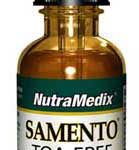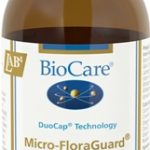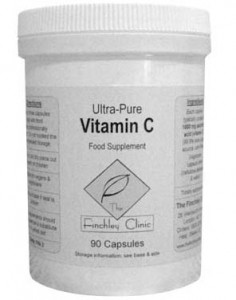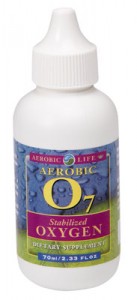Did you know an estimated eight out of 10 Americans feel stressed around Christmastime? When you think about it, it’s hardly very surprising – there’s probably a similar number in the UK and elsewhere in the world. All that pressure to find and buy presents for everybody, to make food, travel and family arrangements, to fit work in around a few days away from the office and so many other things. For some people, the most wonderful time of the year can be anything but.
The trouble with giving in to stress this time of year – aside from the fact it ensures you don’t enjoy Christmas – is that it can force you into bad habits and ill-health. For instance, along with festive indulgences, you may truly end up drinking and eating more than you intend (toxin-rich alcohol and glucose-heavy food), which can cause anxiety in itself and hinder your immunity system, ensuring it’s harder to remain healthy throughout the rest of winter – as you become more susceptible to picking up viral infections like colds and the flu1.
Yet it needn’t be this way. With a little common-sense stress-planning, Christmastime needn’t be such an anxiety-inducing few weeks. Here are some points to consider…
Budgeting and spending
Another far from surprising fact is that nine in every 10 people buy something for others this time of year merely because it’s Christmas1, ensuring the pressures of conforming to the consumerist demands of the season can become all too much for some, especially if they’re already struggling financially. While it’s undoubtedly emotionally rewarding giving someone a gift – not least if, in your eyes, they deserve it – it’s bad news for you if your spending exceeds your budgeting.
Feeling low
The pressures of Christmas and the anxieties they can bring may only be exacerbated by the reality that many can slip into a groove of feeling low in winter, when compared to other seasons. Why do they feel this way to start with, though? ‘Winter blues’ may occur as a result of seasonal affective disorder (SAD), which nowadays is recognised as a form of depression and comprises symptoms brought on by changes in weather and temperature and the time of year2, as well as the fact people get less exercise in winter owing to the cold weather, thus impacting on their psychological and physical health (not least, in the latter case, their immunity levels)3.
Work and social obligations
Fitting the festivities of the season in and around work is often easier said than done. With potentially pressing deadlines to meet by the end of the month – and year – along with other Holiday-related pressures, it can feel like things pile up on you. Moreover, for retail and service staff, Christmas can be the busiest time of year, when a business’s performance is critical to having a successful 12 months, working days become longer and customers are more frantic and less understanding. All this doesn’t mix well with social traditions and obligations; the requirement that we all get involved in things with family and last-minute guests, whether we always feel like doing so or not. In short, it’s all a recipe for festive stress.
Managing stress
It’s important then to successfully manage your stress over Christmas in order to look after yourself in the short term – both psychologically and physically. In order to do that, these are some important areas to get right:
- Healthy diet – as noted, by their very nature the Holidays are a time of indulgence, however that doesn’t have to become overindulgence; it’s OK to moderate your intake by having smaller courses, drinking water while dining and upping the anti-inflammatory foods that are good for your gut like leafy greens, beans, broccoli, citrus fruits and walnuts (and if that isn’t possible, why not try probiotics and supplements for winter – see below?)
- Exercise – don’t forget to get out and remain active over the festive period, as it’s great for combating both depression4 and anxiety5; just a half-hour or hour-long, brisk walk in a natural environment will be worthwhile
- Don’t skimp on sleep – for many, time off over Christmas can be an opportunity to catch up on sleep and there’s something in that; ideally, most of us should be getting regular, decent sleep of around 7-8 hours a night to keep our emotions balanced6, 7 and to help stave off high blood pressure, obesity and heart and kidney disease (sleep deprivation’s been linked to the development of all these conditions)6
- Try to enjoy yourself – this may seem obvious, but when you’re finding life trying it’s sometimes not easy to see the forest for the trees; whether you’re really where you want to be and feel altogether comfortable or not, it can do you good to try to smile, laugh and enjoy yourself (it’s proven that laughing out loud has genuine health benefits8); plus, getting along with those you’re with over Christmas and avoiding tension and disagreement will inevitably ensure the time passes more smoothly and easier and this extends to spending money on presents, so be sensible, do research, maybe shop online away from the crush in the shops and don’t put too much pressure on yourself.
- Do seek help if you need it – if you sense you’re really dropping into a low place, reach out for help from friends and family you trust and can rely on and seek out professional help; share and be honest with others and yourself.
Supplements
As mentioned above, it’s not always easy to maintain an ideal diet over the Christmas period, so if you’re concerned your body isn’t likely to receive all the nutrition it might at this time of year or if, owing to the stresses of the season, you feel boosting your immunity through other means is an option you’d like to follow, you can always try supplementation – the following products are all available through The Finchley Clinic:
Samento (15ml and 60 capsules) – contributes to the immune system and can help with candida and viral and bacterial infections.
Tapioca Vitamin C (90 capsules) – contains the immune-building and infection-fighting Vitamin C.
MicroFloraGuard (30 capsules) – releases into the gut probiotics (‘good bacteria’ that combat infection-carrying microbes or ‘bad bacteria’) and botanical oils at very effective, separate intervals.
References
1. ‘Fact Sheet on Stress’. National Institute of Mental Health. n.d.
2. ‘Seasonal Affective disorder’. Medline Plus. National Library of Medicine. 2016 Oct 12.
3. Bagchi D., Nair S. and Sen C. ‘Nutrition and Enhanced Sports Performance’. N.p.: Academic Press. 2013 Oct 8.
4. Craft L. L. and Perna F. M. ‘The Benefits of Exercise for the Clinically Depressed’. The Primary Care Companion to the Journal of Clinical Psychiatry 6.3 (2004): 104–111.
5. Anderson E. and Shivakumar G. ‘Effects of Exercise and Physical Activity on Anxiety’. Frontiers in Psychiatry 4. (2013): n.pag.
6. Gibbons G. H. ‘Why is Sleep Important?’. National Heart, Lung and Blood Institute. 2014 Aug 19.
7. Centers for Disease Control and Prevention. ‘How Much Sleep Do I Need?’. CDC.gov. 2015 Nov 12.
8. Strean W. B. ‘Laughter Prescription’. Official Publication of the College of Family Physicians of Canada 55.10 (2009): 965–967.




